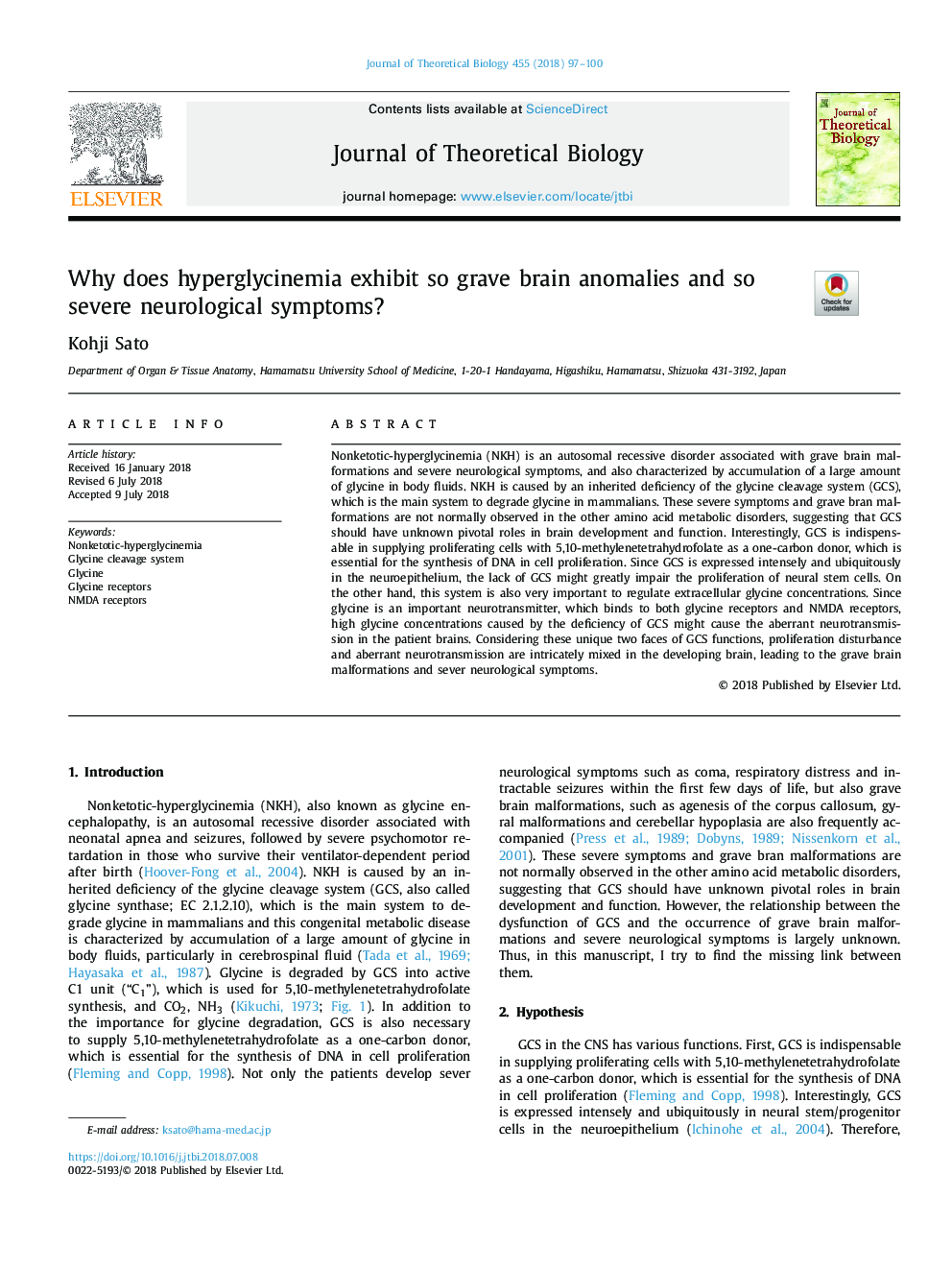| Article ID | Journal | Published Year | Pages | File Type |
|---|---|---|---|---|
| 8876483 | Journal of Theoretical Biology | 2018 | 4 Pages |
Abstract
Nonketotic-hyperglycinemia (NKH) is an autosomal recessive disorder associated with grave brain malformations and severe neurological symptoms, and also characterized by accumulation of a large amount of glycine in body fluids. NKH is caused by an inherited deficiency of the glycine cleavage system (GCS), which is the main system to degrade glycine in mammalians. These severe symptoms and grave bran malformations are not normally observed in the other amino acid metabolic disorders, suggesting that GCS should have unknown pivotal roles in brain development and function. Interestingly, GCS is indispensable in supplying proliferating cells with 5,10-methylenetetrahydrofolate as a one-carbon donor, which is essential for the synthesis of DNA in cell proliferation. Since GCS is expressed intensely and ubiquitously in the neuroepithelium, the lack of GCS might greatly impair the proliferation of neural stem cells. On the other hand, this system is also very important to regulate extracellular glycine concentrations. Since glycine is an important neurotransmitter, which binds to both glycine receptors and NMDA receptors, high glycine concentrations caused by the deficiency of GCS might cause the aberrant neurotransmission in the patient brains. Considering these unique two faces of GCS functions, proliferation disturbance and aberrant neurotransmission are intricately mixed in the developing brain, leading to the grave brain malformations and sever neurological symptoms.
Related Topics
Life Sciences
Agricultural and Biological Sciences
Agricultural and Biological Sciences (General)
Authors
Kohji Sato,
